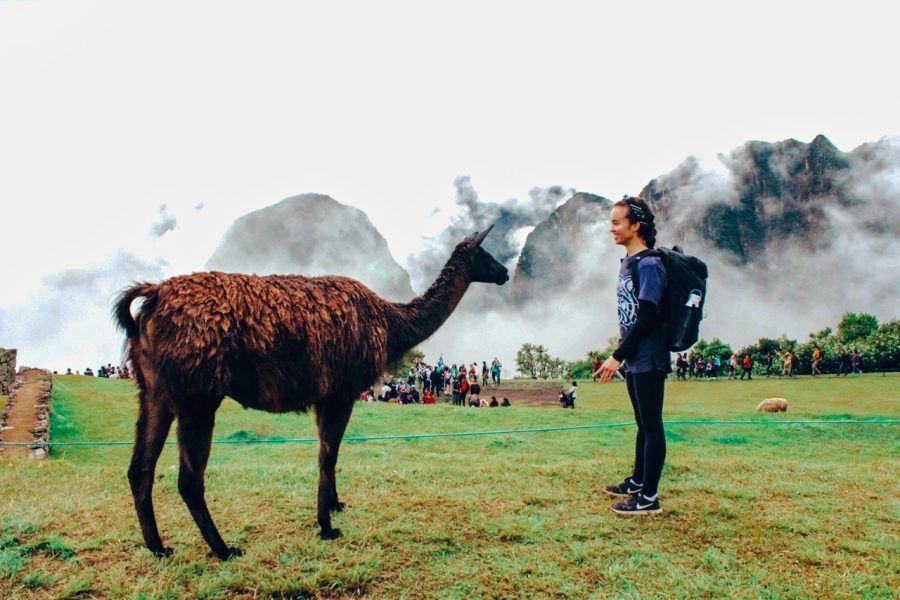The University of Arizona study abroad fair is an annual event providing students the opportunity to learn more about taking their education across borders. This year, it will be held virtually the week of Oct. 12.
RELATED: Campus reentry update: Robbins announces tentative Phase 2 reentry date
In the past, the fair was a single day event. However, this year students will have access to resources and information sessions spread throughout the span of a week. Study abroad marketing and recruitment team member Jacob Eavis emphasized the benefits of extending the fair to this new longer duration.
“Study abroad can seem decently overwhelming if you’re just coming to it,” Eavis said. “So, it’s nice to provide students the opportunity to keep coming back throughout that week, but then beyond too. To say ‘How can I continue this journey?’ How can we as the study abroad office help them along the way?”
Eavis also said there will be open advising sessions held from 8 a.m. to 8 p.m. Monday through Friday for students to work with advisors. This serves as an opportunity to explore and tailor study abroad plans to fit students’ academic and personal schedules.
Eavis added that attendees will also have access featuring study abroad alumni, as well as a variety of workshops on subjects including safety and scholarship. Particularly, Thursday’s programming will feature regional spotlights highlighting specific opportunities available to students depending on their geographical region of interest. By participating in the information sessions over Zoom on Wednesday or Thursday, students are eligible to win a $500 scholarship towards study abroad.
As for what students can expect from study abroad this year in the age of COVID-19, this will vary greatly based on the individual program and student.
UA Director of Global Travel Jill Calderón said the UA refers to public health guidance, the U.S. Centers for Disease Control and Prevention, the U.S. Department of State, international security intelligence providers and the university’s International Travel Safety Oversight Committee, as well as other pertinent resources.
“When making recommendations about specific programs, we also consider local conditions and input from peer institutions and our overseas partners,” Calderón said in a statement on the UA Study Abroad FAQs. “We do not make any recommendations regarding either current or upcoming study abroad programs without a full assessment of the total impact on our students’ health, safety and security.”
As one silver lining to the virtual format, the study abroad office expanded their accessibility with new on-demand web resources to guide students through the planning process. Assistant Director of UA Study Abroad Marketing Rachel Walker emphasized the importance of interested students looking forward and engaging in the planning process.
“Study abroad is such an academically integrated experience,” Walker said. “[It is helpful for students to be] thinking ahead and being intentional about how they can make their dreams a reality in the future and have it also be academically relevant.”
RELATED: Election 2020: A last-minute guide to voter registration
Marissa MacLennan is a senior E-Society major recently returned from Barcelona this March.
MacLennan stayed in Gràcia, Barcelona, which she described as a quaint and “non-touristy part” of Barcelona. The program she participated in was associated with Cultural Experiences Abroad, a third-party study abroad service no longer affiliated with the UA.
MacLennan’s weekly schedule required her to go the city to take classes associated with her major that also related to Catalan culture. When she didn’t have class, MacLennan travelled to other cities throughout Europe including Paris, Berlin and Amsterdam. For her, the experience was one of great personal growth.
“It broadened me in such an amazing way,” MacLennan said. “I just think if you never get outside of yourself, you’re going to live in your own little world and think that’s all that exists.”
However, her study abroad experience did not come without challenges. From culture shock and language barriers to waking up at 4 a.m. to rush to the airport, MacLennan emphasized that traveling made her much more independent.
“It’s hard too,” MacLennan said. “When I got to Barcelona, I didn’t like it the first five days. I missed my friends. But after those first five days, I had so much growth personally … Being afraid of it only lasts a few days. Being homesick only lasts a few days. Having culture shock only lasts until you decide to get over it.”
MacLennan’s experience was cut 75 days short due to the escalating COVID-19 pandemic. She frantically packed after learning of President Donald Trump’s Europe travel ban, leaving behind several souvenirs in the process.
“I never got to say goodbye,” MacLennan said. “I never got to say goodbye to any of the people I met. I never got to say goodbye to any of the places in Spain that meant so much to me. I never got to have any of those last moments that make it feel done.”
Despite this abrupt end, MacLennan stressed the positive impact the experience had on her.
“You can’t really explain the way a country touched you and how you’re different but you are,” MacLennan said. “I got 65 days but they were the best 65 days of my life. I wouldn’t take them back for anything.”
Follow Hillary Schiff on Twitter








